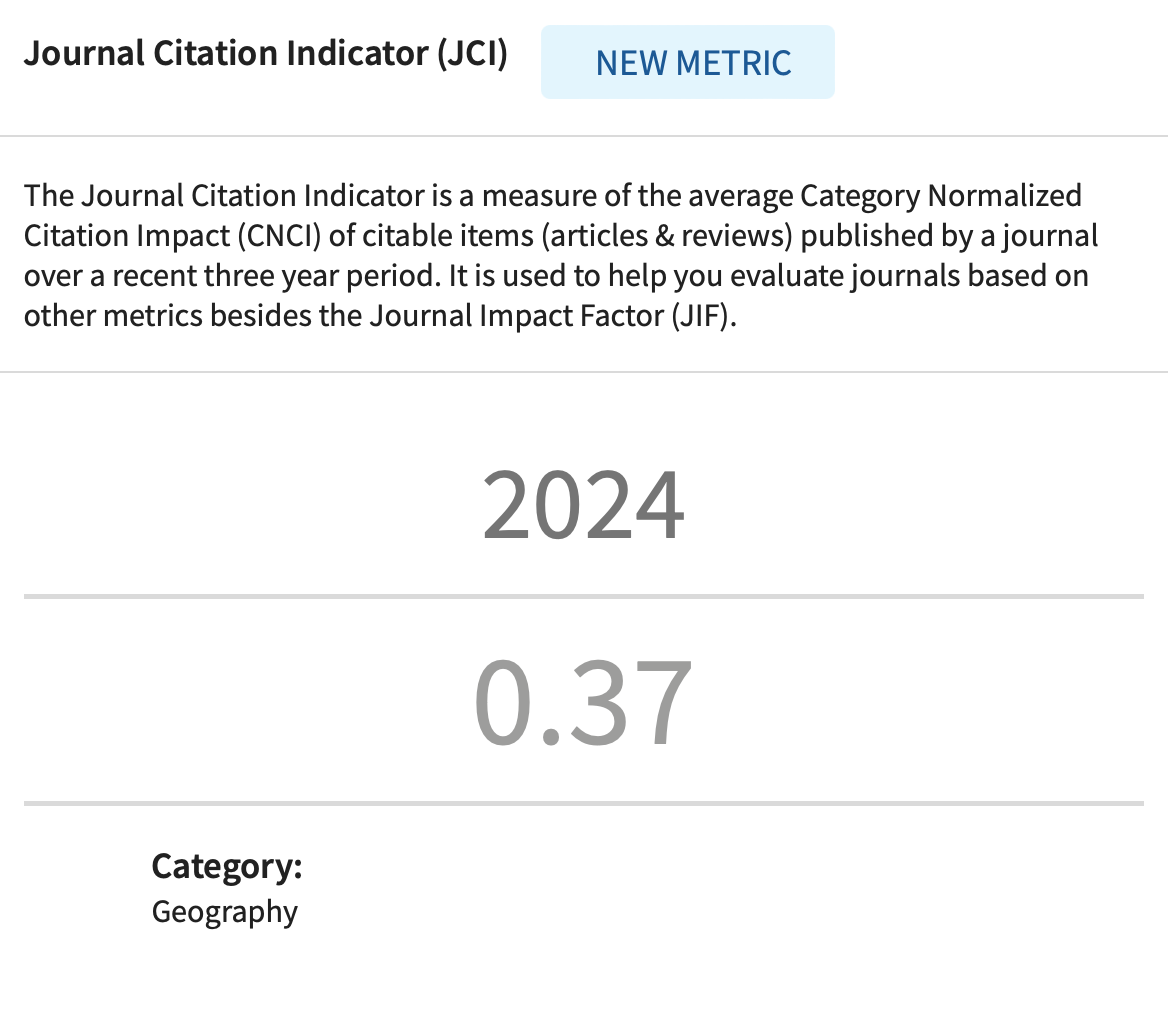A COMPARATIVE ANALYSIS OF SERBIAN NATIONAL CULTURE AND NATIONAL CULTURES OF SOME EUROPEAN COUNTRIES BY GLOBE PROJECT APPROACH
DOI:
https://doi.org/10.2298/IJGI180315002NKeywords:
cultural geography, GLOBE national culture dimensions, Serbia, self-management system, Eastern European clusterAbstract
Many scholars have been interested in grouping countries into similar clusters based on different criteria including geographic proximity, mass migrations, and ethnic social capital and religious and linguistic commonality. Clustering of societies is beneficial for many reasons and the GLOBE project method of clustering is of special importance from the intercultural management point of view. The results of the GLOBE project were based on the data collected from samples which consisted of middle managers. In this paper, we used the GLOBE project approach to clustering process because of its importance from the point of view of international business cooperation. Namely, it is well known that national culture strongly influences organizational culture and that the business performances are much better when national and organizational cultures fit well. Our cluster consists of Serbia and the Eastern European cluster without Georgia, Kazakhstan and Albania, since the rest of the Eastern European cluster has many common historical connections with Serbia including the fact that they belonged to the former Eastern Bloc (the Communist Bloc) or they were under the occupation of the Ottoman Empire during a long period.
Article metrics
References
Antonić, S. (2004). Društvena transformacija i strategije društvenih grupa [Social transformation and strategies of social groups]. In: A. Milić (Ed.), Društvena transformacija i strategije društvenih grupa: svakodnevica Srbije na početku trećeg milenijuma [Social transformation and strategies of social groups: everyday life of Serbia at the beginning of the third millennium] (str. 19–58). Belgrade, Serbia: Institut za sociološka istraživanja Filozofskog fakulteta.
Arandarenko, M. (2000). Ekonomska stvarnost Srbije [Serbian Economic Reality]. In M. Lazić (Ed.), Račji hod [Crab’s Walk] (pp. 335-372). Belgrade, Serbia: “Filip Višnjić”.
Bakacsi, G., Takács, S., Karácsonyi, A., & Imrek, V. (2002). Eastern European Cluster: tradition and transition. Journal of World Business, 37(1), 69–80. doi: https://doi.org/10.1016/S1090-9516(01)00075-X
Berry, J. W., & Ward, C. (2006). Commentary on “Redefining Interactions Across Cultures and Organizations”. Group and Organizational Management, 31(1), 64–77. doi: https://doi.org/10.1177/1059601105275264
Blyton, P. (2001). The General and the Particular in Cross-National Comparative Research. Applied Psychology: An International Review, 50(4), 590–595. doi: https://doi.org/10.1111/1464-0597.00074
Brodbeck, F. C., Frese, M., & Javidan, M. (2002). Leadership made in Germany: Low on compassion, high on performance. Academy of Management Executive, 16(1), 16–30. doi: https://doi.org/10.5465/ame.2002.6640111
Coser, L. (1956). The Functions of Social Conflict. New York: A Free Press Paperback, The Macmillan Company.
Crnobrnja, M. (2007). Ekonomija tranzicije [Transition economics]. Belgrade, Serbia: Fakultet za ekonomiju, finansije i administraciju.
Dickson, M. W., Aditya, R. N., & Chhokar, J. S. (2000). Definition and Interpretation in Cross-Cultural Organizational Culture Research: Some Pointers from the GLOBE Research Program. In N.M Ashkanasy, C.P.M Wilderom, & M.F Peterson (Eds.), Handbook of organizational culture and climate (pp. 447–465). Thousand Oaks, CA: Sage Publications, Inc.
Dickson, M. W., Den Hartog, D. N., & Mitchelson, J. K. (2003). Research on leadership in a cross-cultural context: Making progress and raising new questions. The Leadership Quarterly, 14(6), 729–768. doi: https://doi.org/10.1016/j.leaqua.2003.09.002
Dimitratos, P., Petrou, A., Plakoyiannaki, E., & Johnson, J. E. (2011). Strategic decision-making processes in internationalization: Does national culture of the focal firm matter? Journal of World Business, 46(2), 194–204. doi: https://doi.org/10.1016/j.jwb.2010.05.002
Feichtinger, C., & Fink, G. (1998). The collective culture shock in transition countries theoretical and empirical implications. Leadership and Organization Development Journal, 19(6), 302–308. doi: https://doi.org/10.1108/01437739810240821
Fink, G., & Holden, N. (2002). Collective culture shock. Contrastive reactions to radical systemic change. EI Working Papers, Europainstitut, 45. Forschungsinstitut für Europafragen, WU Vienna University of Economics and Business, Vienna.
Gerhart, B. (2008). Cross Cultural Management Research: Assumptions, Evidence, and Suggested Directions. International Journal of Cross Cultural Management, 8(3), 259–274. doi: https://doi.org/10.1177/1470595808096669
Grachev, M., Rogovsky, N., & Rakitski, B. (2007). Business Leadership and Culture in Transitional Economy: A Case of Russia, In J. Chhokar, F. Brodbeck, R. House (Eds.), Culture and Leadership Across the World: the GLOBE Book of In-Depth Studies of 25 Societies (pp. 803–831). Mahwah, NJ: Lawrence Erlbaum.
Gupta, V., Hanges, P. J., & Dorfman, P. (2002). Cultural clusters: methodology and findings. Journal of World Business, 37(1), 11–15. doi: https://doi.org/10.1016/S1090-9516(01)00070-0
Hofstede, G. (1980). Culture’s Consequences – International Differences in Work-Related Values. Abridged Edition, Newbury Park, CA: Sage.
Hofstede, G. (2001). Culture’s Consequences, Comparing Values, Behaviours, Institutions, and Organizations Across Nations. Thousand Oaks, CA: Sage Publications.
House, R., Wright, N. S., & Aditya, R. N. (1997). Cross-cultural research on organizational leadership: A critical analysis and proposed theory. In P. C. Early, & M. Erez (Eds.), New Perspectives on International Industrial/Organizational Psychology. San Francisco, CA: Lexington Press.
House, R. J., Hanges, P. J., Ruiz-Quintanilla, S. A., Dorfman, P. W., Falkus, S. A., & Ashkanasy, N. M. (1999). Cultural influences on leadership and organizations: Project Globe. In W. H. Mobley, M. J. Gessner & V. Arnold (Ed.), Advances in Global Leadership (2nd Ed.) (pp. 171–233). Bingley, UK: Emerald Group Publishing Ltd.
House, R. J., Javidan, M., & Dorfman, P. (2001). Project GLOBE: An Introduction. Applied Psychology: An International Review, 50(4), 489–505. doi: https://doi.org/10.1111/1464-0597.00070
House, R. J., Javidan, M., Hanges, P., & Dorfman, P. (2002). Understanding Cultures and Implicit Leadership Theories Across the Globe: An Introduction to Project GLOBE. Journal of World Business, 37(1), 3–10. doi: https://doi.org/10.1016/S1090-9516(01)00069-4
House, R. J., Hanges, P. J., Javidan, M., Dorfman, P. W., & Gupta, V. (2004). Leadership, culture, and organizations: The GLOBE study of 62 societies. Thousand Oaks, CA: Sage.
Inglehart, R. (1997). Modernization and Post-modernization. Cultural, Economic and Political Change in 43 Societies, Princeton, NJ: Princeton University Press.
Jankov, S. (1983). Savremeni privredni sistemi I: razvijene kapitalističke zemlje i SSSR [Modern economic systems No. I: Developed capitalist countries and the USSR]. Belgrade, Serbia: Naučna knjiga.
Javidan, M., Dorfman, P. W., Sully de Luque, M. F., & House, R. J. (2006). In the eye of the beholder: cross cultural lessons in leadership from project GLOBE. Academy of Management Perspectives, 20(1), 67–90. doi: https://doi.org/10.5465/amp.2006.19873410
Jesuino, J. C. (2002). Latin Europe cluster: from South to North. Journal of World Business, 37(1), 81–89. doi: https://doi.org/10.1016/S1090-9516(01)00076-1
Kabasakal, H., & Bodur, M. (2004). Humane Orientation in Societies, Organizations, and Leader Attributes. In R. J. House, P. J. Hanges, M. Javidan, P. W. Dorfman & V. Gupta (Eds.), Culture, Leadership and Organizations, The GLOBE Study of 62 Societies (pp. 564–601). Thousand Oaks, CA: Sage.
Kluckhohn, F. R., & Strodtbeck, F. L. (1961). Variations in value orientations. Oxford, UK: Row, Peterson.
Kuljić, T. (2003). Yugoslaviaʼs Workers Self-Management. EIPCP multilingual webjournal (http://www.republicart.net 1).
Lazić, M. (2002). Spread of value orientation among political and economic elites in Serbia. Romanian Journal of Political Science, 7(2), 67–83. Retrieved from http://eds.b.ebscohost.com/eds/pdfviewer/pdfviewer?vid=0&sid=cf0cc033-fc76-4356-8998-97e82566dcbf%40pdc-v-sessmgr02
Linden, T., Arnhold, N., & Vasiliev, K. (2008). From Fragmentation to Cooperation: Tertiary Education, Research and Development in South Eastern Europe. Education Working Paper Series, 13. Washington, DC: The World Bank.
Mojić, D. (2003). The influence of national culture on organizational subcultures and leadership styles in Serbian enterprises: an empirical analysis. Sociologija, 45(4), 317–346. doi: https://doi.org/10.2298/SOC0304317M
Pasa, S. F., Kabasakal, H., & Bodur, M. (2001). Society, Organisations, and Leadership in Turkey. Applied Psychology: An International Review, 50(4), 559–589. doi: https://doi.org/10.1111/1464-0597.00073
Schwab, K. (2011). The Global Competitiveness Report 2011–2012. World Economic Forum. Geneva, Switzerland. Retrieved from http://www3.weforum.org/docs/WEF_GCR_Report_2011-12.pdf
Sekelj, L. (1990). Jugoslavija, struktura raspadanja: ogled o uzrocima strukturne krize jugoslovenskog društva [Yugoslavia, structure of disintegration: an overview of the causes of the structural crisis of Yugoslav society]. Belgrade, Serbia: Rad.
Statistical Office of the Republic of Serbia. (2011). Women and Men in the Republic of Serbia. Belgrade, Serbia: Statistical Office of the Republic of Serbia. Available from http://www.gendernet.rs/rrpage.php?chapter=19
Szabo, E., & Reber, G. (2007). Culture and Leadership in Austria. In J. S. Chhokar, F.C. Brodbeck, & R. House (Eds.), Culture and Leadership Across the World: The GLOBE Book of In-Depth Studies of 25 Societies (pp. 109–146). London, UK: Psychology Press.
Trompenaars, F., & Hampden-Turner, C. (1997). Riding the waves of culture: understanding cultural diversity in business. London, UK: Nicholas Brealey.
Vuković, S. (2012). Srpsko društvo i ekonomija (1918-1992) [Serbian society and economy (1918-1992)]. Sremski Karlovci, Novi Sad, Serbia: Izdavačka knjižarnica Zorana Stojanovića.
Ward, C., Bochner, S., & Furnham, A. (2001). The psychology of culture shock (2nd Ed.). London, UK: Routledge.
http://www.vojska.net/ (“Serbian army, August 1914”) Accessed on April 28th, 2010
Downloads
Published
How to Cite
Issue
Section
License
Copyright (c) 2018 Journal of the Geographical Institute “Jovan Cvijić” SASA

This work is licensed under a Creative Commons Attribution-NonCommercial-NoDerivatives 4.0 International License.











